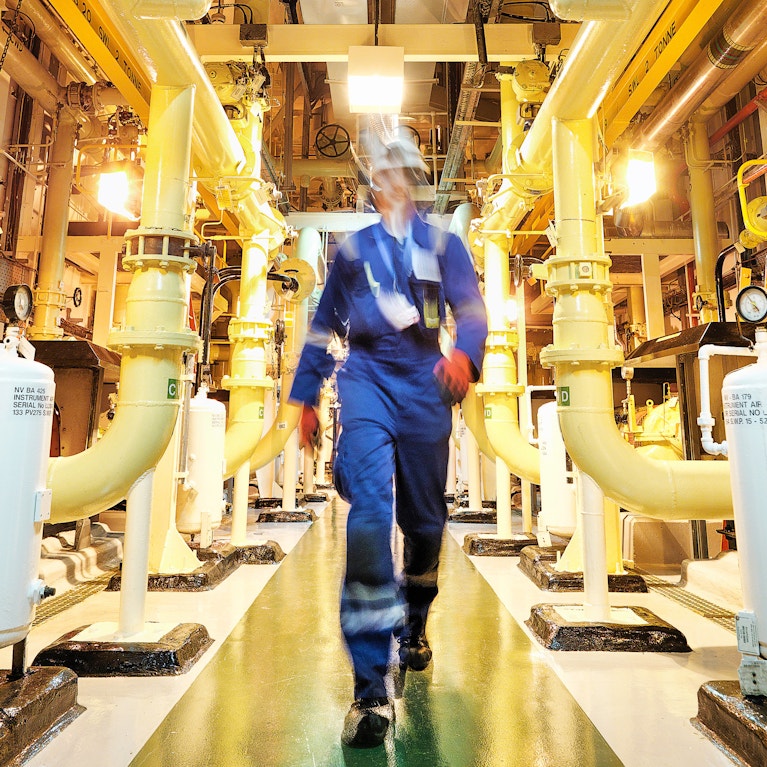
Nuclear Decommissioning Authority
Building the roadmap for a data-driven transformation
Tags
Handling the UK’s nuclear legacy will span generations. Data plays a pivotal role in doing so safely and efficiently, and we’ve worked with the body responsible to shape a vision for how it can happen.
The Nuclear Decommissioning Authority (NDA) is in charge of safely and securely decommissioning the UK’s legacy nuclear sites and managing, removing, and storing nuclear waste. The NDA is a non-departmental government body, responsible for 17 nuclear sites, almost 17,000 employees, and over 800 buildings that need to be demolished safely and securely.
The NDA group is made up of the NDA and its four key component operating companies (OpCo’s), who are responsible for delivering the collective mission, whether it’s decommissioning reactors, or processing, transporting, and storing waste. Each works to promote safe and efficient delivery throughout the lifecycle, and therefore fostering cohesion within the respective organisations is imperative.
The better we work together, the more effectively and efficiently we fulfil our mission, as well as saving tax payers’ money. That means helping our teams see the benefits of collaborating, and showing how harnessing data makes this possible.”
The organisation knew managing its data was crucial to building a new way of working and making its wider digital transformation a success.
Building confidence in change
Our nuclear industry experts brought teams from the OpCo’s together to explore how data could transform ways of working and connect them more strongly.
Along the way, whilst pockets of good practice were evident, it also became clear that many teams were storing data in different systems, using different standards and formats, and in some cases gathering it manually. They were also duplicating effort, especially in reporting, where the same data would need to be collected and re-entered multiple times. Our team shared examples of how other organisations are benefitting from exploiting data in areas such as decommissioning North Sea oil fields.
Seeing the value of data
The work underlined several benefits of using data. “High-quality data that’s easy to access, visualise, and use saves time and money,” explained PA Global Head of Nuclear, Julianne Antrobus. She continued, “reliable, trusted information also creates a strong basis for better-informed decisions, whether it’s making strategic investments or prioritising maintenance. And it means organisations can predict the future in a way that helps them plan with more certainty.”
Shaping a shared vision for data
In just six months, we worked with the NDA group to conduct a detailed assessment of existing data maturity and capability. The culmination of this was the first group-wide data strategy developed with contributions and input from each organisation. “This makes it clear that it’s a shared vision and everyone has a stake in it,” said Antrobus. The strategy sets out a plan to exploit the data the group already has, using common platforms, as well as forecast future performance and accelerate innovation in key areas like finding new ways to store nuclear waste. The vision includes using AI and natural language processing to turn unexploited data into an asset that produces insights.
“The cross-organisational steering and working groups we formed were crucial in developing the strategy,” explained Jan Skoniezki, Utilities Data and Analytics Expert, PA. He continued, “there is such passion to improve data-driven performance and asset management, sharing best practice and aligning investment in the data and people capability alongside the tech in the sector. It will also accelerate knowledge sharing and collaboration which is vital for future generations as a lot of this knowledge is held by people approaching the end of decades of service.”
The strategy puts the NDA in a position to create a business case for building data capability and skills, alongside infrastructure. “Having the right technology, tools, and processes, as well as culture, will help us unlock the group’s potential.” noted NDA’s Tucker.
A shared plan for harnessing, sharing, and using data will also accelerate and bring together other strategies for the group’s broader transformation, including information security, cyber security, and digital.
Data can be the glue that brings all this work together. By building thinking and capability in this area now, NDA stands to get the biggest benefits.”
The work is an investment in the long-term future of nuclear decommissioning and waste management. “This is a crucial step in building a culture where data is part of all we do and how we think, work, and collaborate,” said Tucker. “Our teams have unrivalled expertise in their fields, but by adding specific data and digital change capability we’ll increase the value of that expertise many times over.
Explore more






